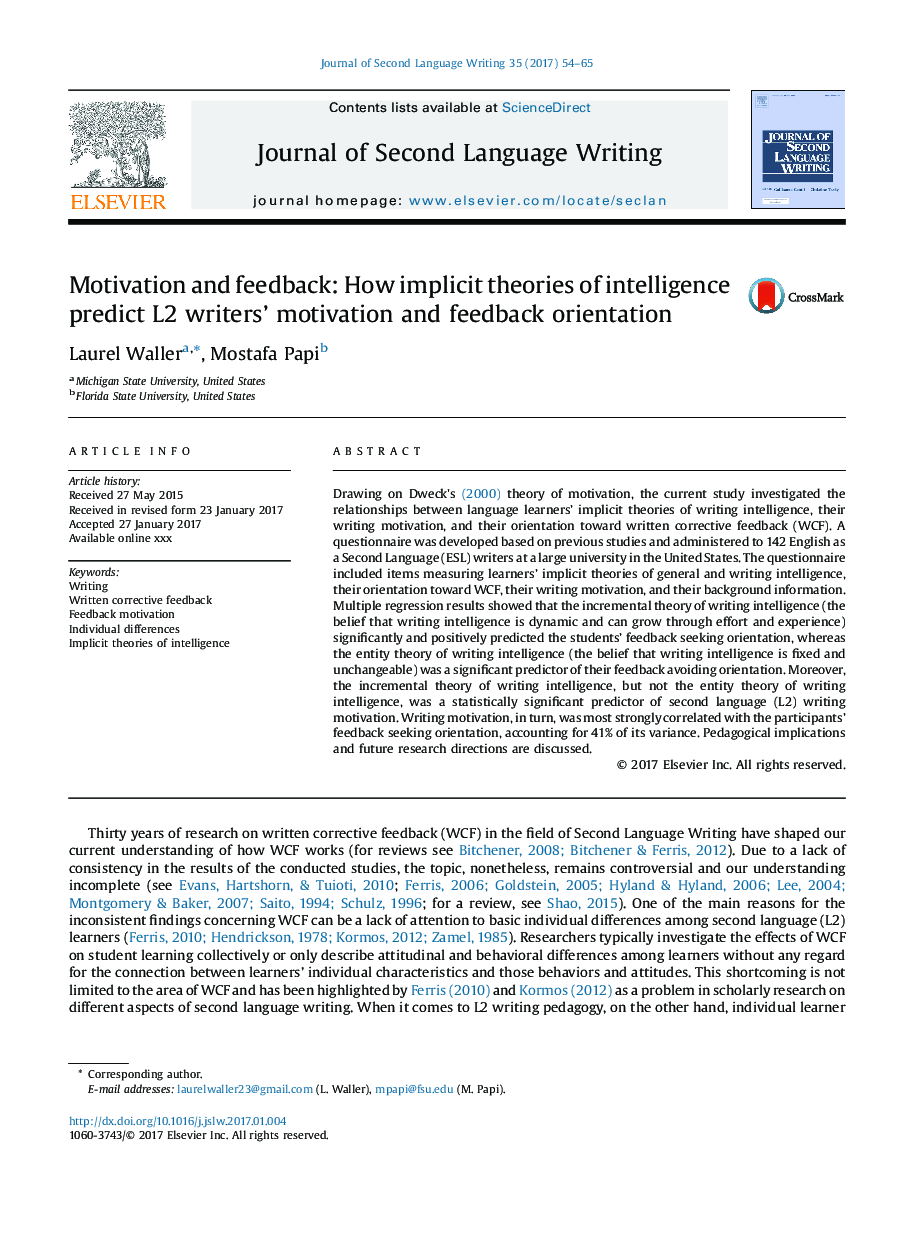| Article ID | Journal | Published Year | Pages | File Type |
|---|---|---|---|---|
| 4939830 | Journal of Second Language Writing | 2017 | 12 Pages |
Abstract
Drawing on Dweck's (2000) theory of motivation, the current study investigated the relationships between language learners' implicit theories of writing intelligence, their writing motivation, and their orientation toward written corrective feedback (WCF). A questionnaire was developed based on previous studies and administered to 142 English as a Second Language (ESL) writers at a large university in the United States. The questionnaire included items measuring learners' implicit theories of general and writing intelligence, their orientation toward WCF, their writing motivation, and their background information. Multiple regression results showed that the incremental theory of writing intelligence (the belief that writing intelligence is dynamic and can grow through effort and experience) significantly and positively predicted the students' feedback seeking orientation, whereas the entity theory of writing intelligence (the belief that writing intelligence is fixed and unchangeable) was a significant predictor of their feedback avoiding orientation. Moreover, the incremental theory of writing intelligence, but not the entity theory of writing intelligence, was a statistically significant predictor of second language (L2) writing motivation. Writing motivation, in turn, was most strongly correlated with the participants' feedback seeking orientation, accounting for 41% of its variance. Pedagogical implications and future research directions are discussed.
Related Topics
Social Sciences and Humanities
Arts and Humanities
Language and Linguistics
Authors
Laurel Waller, Mostafa Papi,
